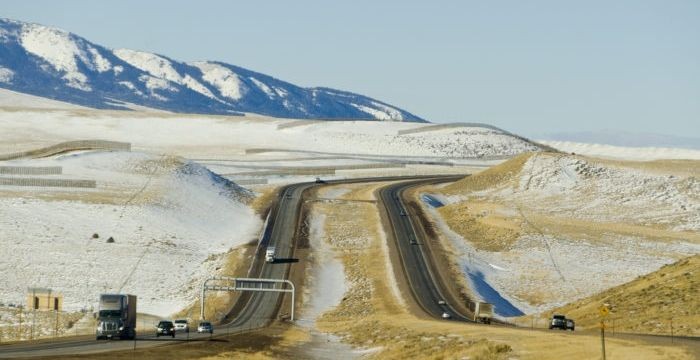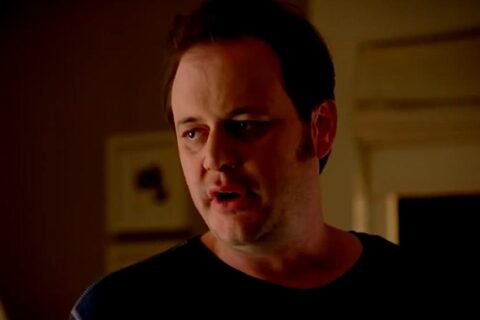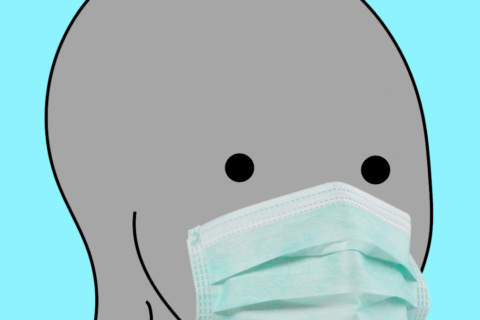Bob drove Tim and I to Evanston, Wyoming for a meal at Jody’s Diner, set between a motel that always has vacancies, across from a closed gas station and a defunct steak house, a small windblown town subject to oil field economics, hanging on only due to the fact that it is a rest stop on I-80 north to hipsterfied Jackson Hole and Yellowstone.
On the way into this small, high country, working class town there stands a community college billboard, featuring a white woman front and center, a timid white man behind her right shoulder, and a grinning black man next to her left shoulder, all three in cap and gown holding diplomas. This was so obviously out-of-place as there are no black folks in Wyoming—maybe five—and there are significant Indian and Latino minorities. That black fella in cap and gown should have been a Shoshone or a Mexican-American. How strange.
There is an Air Force base near by with the occasional airperson dinning in, along with travelers, ranchers and the odd passerby. Just down the street is the rodeo stadium, placed off center from the business district in the heart of the town.
Tim wanted some snuff and I was looking for a bottle of coffee rum, so Bob drove us through the residential area of town, where the thousand or so working people live beneath Red Mountain. The trailers were wind-scoured, dilapidated and faded from the high country sun, all of the residents having a truck of some kind so that they can get around come winter, two hours south of the coldest town in America, whose name escapes me.
Red Mountain Spirits is a nice liquor store on a lonely lot at the edge of town, placed like a bank in some older western. The lady within was a very nice woman, running the entire place by herself. As I bought my bottle and two packs of almonds for Bob, I looked at the picture of a pretty young blonde girl, perhaps 21, wrapped around a canister with a slit in the top, with a notice that she is battling cancer. I placed a $5 in the can and looked up at the old girl ringing out my order and she placed one elbow on the counter, her chin in the hand, and managed a frown-like smile as she taped the canister with her pen and said, “Such a sad story…as if there’s any other kind.”
As I stepped outside, I stopped next to the truck and looked up at Red Mountain, about 300 feet above us, making out the details, and noted that mansions stood above the windblown town of little people among a few majestic evergreens and grinning rocks.
Climbing up into the truck I pointed at the houses upon that natural acropolis [the high-city where gods and priests and tyrants resided in ancient Hellas], and asked Bob, a long-time water operator, holding every utility certificate in his own state of Utah what applies to keeping people and cattle watered in the high desert, “How do they get water, a well?”
“Doubtful. Those are the rich coastal people that come in and put their house on the hill so we don’t forget they’re better than us and then take over the local government and make us pump their water to them. I don’t know how many times these suburban sons of bitches have come up here and told me they were going to teach me how to live, and work and look out for my family, when they can’t even change a flat tire. There they are, looking down on the little people who do everything. They had a gay pride parade over in Heber, and there’s but one gay person over there and made everyone take down the American flags on the government buildings. And then, when we wanted to have an American Pride parade, the permit was denied so you couldn’t even fly an American flag down Main Street. We’re being driven out by the rich coastal people. They’ll keep some of us around to operate the utilities, but we better mind.”
Then it occurred to me why that billboard reflected the demographics of Los Angeles and Philadelphia. The most remote places in Red America are being colonized by the elites of Blue America, beginning with secondary education. Even under Red Mountain, Wyoming, on the roof of this angst-ridden nation, the commissars have landed.

James is a full-time writer, part-time coach and part-time wage slave with an extensive history of brain trauma. Check out: http://www.jameslafond.com/




“I don’t know how many times these suburban sons of bitches have come up here and told me they were going to teach me how to live, and work and look out for my family, when they can’t even change a flat tire. ”
The Carpetbaggers that come here to Texas, or other parts of Dixie, act the same way.
Aparently, among Yankees and Mexifornians, there’s the belief that they’re the only people who work and pay taxes. Every payday, when you get off work, you ought to thank the numerous Vinnies and Theresas in Joisey, and the fashionable faeries of San Angeles, for buying your groceries and paying your bills.
“-made everyone take down the American flags on the government buildings.”
They love that flag when it’s used as an anti-Southern symbol, or when they claim the fictional superior rights, privileges and authority that they believe that they’re entitled to, because General Lee surrendered America to the armies of Massachusetts. Or when they hide behind it to commit their numerous cultural and political crimes.
After it’s all said and done, the South and the Interior West are Natural allies in the struggle against Yankeedom and her Pacific Rim colonies.
Except for the landscape, I found nothing in the description of the Wyoming town that isn’t like a lot of similar towns in Texas, Oklahoma and Arkansas. Especially the rodeo arena and the cafe.